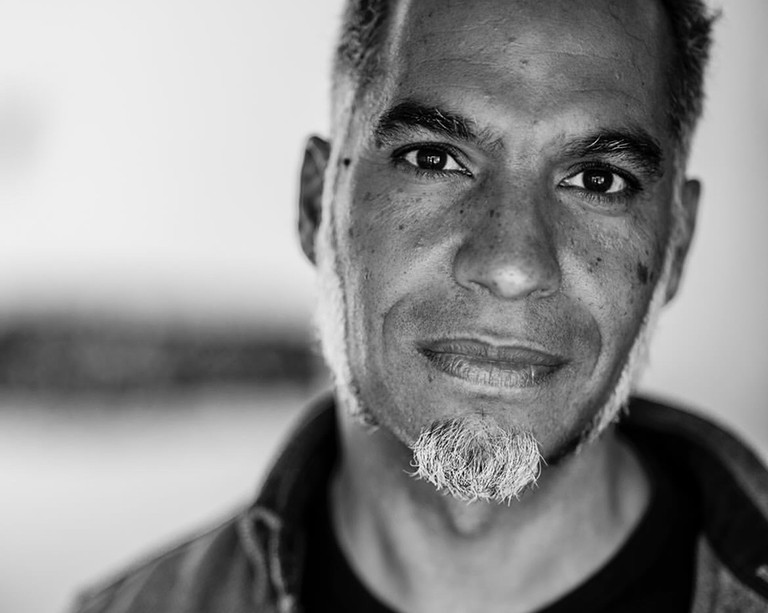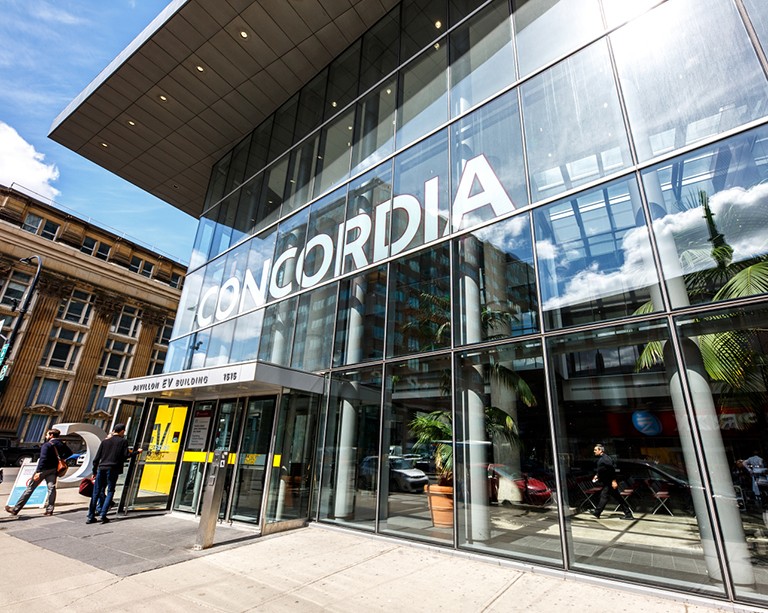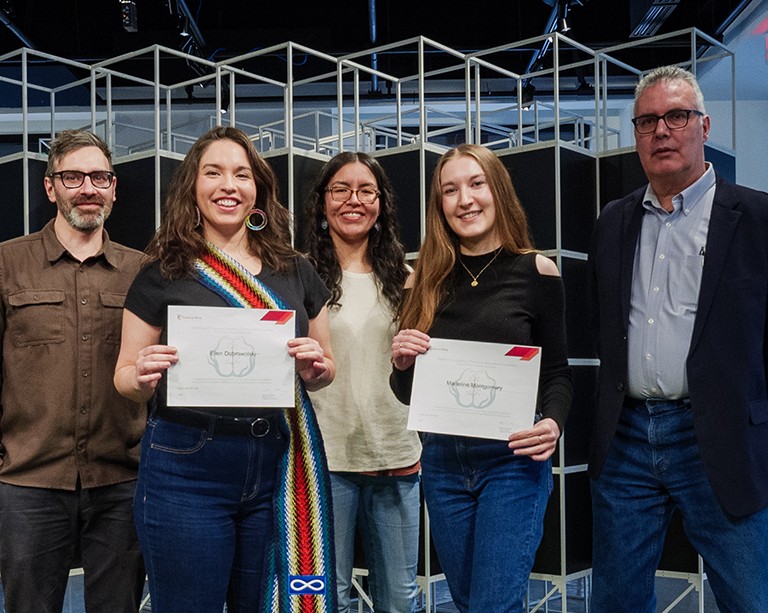Forthcoming climate change podcast collaboration with Concordia scholars earns a Trebek Initiative Grant

Loss of biodiversity, increasing ocean temperatures, microplastics in our food supply — the effects of climate change such as these, and more, can evoke some powerful emotions.
A new podcast, “Beyond Ecological Grief,” has just been awarded a Trebek Grant to explore the feelings that arise in many of us in response to our changing environment.
The proposed project is led by journalist Amy Romer, in partnership with Concordia’s Nicola Smith, assistant professor of biology, and Florian Grond, assistant professor of design and computation arts.
Media producer Daniel J. Pierce is also set to contribute.
Though the podcast is still in its early stages, the team is also investigating the possibility of involving Concordia students in the project.
 Ornithologist and composer Vytautas Bucionis recording nature soundscapes in Orford. | Photo: Florian Grond.
Ornithologist and composer Vytautas Bucionis recording nature soundscapes in Orford. | Photo: Florian Grond.
From eco-grief to eco-solutions
“Beyond Ecological Grief” — the name has not been finalized — will combine scientific expertise with personal narratives from those with lived experience. Using immersive soundscapes and acoustic improvisations, the six-part series seeks to explore the emotional impact of ecological changes while uncovering actionable solutions.
The goal is to offer listeners the opportunity to grieve collectively while empowering them to shape a more promising path forward.
The Trebek Initiative, the organization behind the grant, is a partnership between the Royal Canadian Geographical Society and National Geographic. The initiative supports artists, educators, conservationists, innovators and researchers “whose projects aim to preserve Canadian and Indigenous land, wildlife, water, culture and history.”
Romer says she is grateful to the initiative for believing in the team, and for recognizing the importance of ecological grief as a topic to be explored in audio format.
“As the planetary health crisis continues to deepen, and people’s lives become increasingly affected, it’s not a subject we should shy away from. Instead, we should interrogate it and hopefully find ways for ourselves and future generations to cope,” she says.
 North Vancouver, pictured amid 22 days of health advisories due to wildfire smoke, 2018. | Photo: Amy Romer
North Vancouver, pictured amid 22 days of health advisories due to wildfire smoke, 2018. | Photo: Amy Romer
Channeling grief — and hope — into action
In 1969, psychiatrist Elisabeth Kübler-Ross outlined five stages of grief: denial, anger, bargaining, depression and acceptance. Two decades later, gerontologist Kenneth J. Doka suggested “hope” as an additional stage.
Premised on these ideas, “Beyond Ecological Grief” will be organized into six episodes: one to address each emotional stage.
As Smith explains, the addition of hope — that is, action or moving-on/beyond — will be key. A former Liber Ero Postdoctoral Research Fellow in the Changing Ocean Research Unit at the University of British Columbia in Vancouver, her research focuses on the effects of climate change on marine invasive species globally.
The collaborators were introduced at a ten-year anniversary retreat for current and previous Liber Ero cohorts. Smith chose to host a gathering to discuss the idea of ecological grief.
Romer, who was in attendance to report on the fellowship, was inspired by the ensuing conversation. Shortly thereafter, she contacted Smith about developing their ideas into a podcast that could be pitched to the Trebek Initiative.
The immersive audio component came about later that summer, when Smith met Grond at an orientation session for new Concordia faculty.
“Florian was telling me about a podcast he, his brother and Ruth Anderwald produced about dizziness — how their unique composition made you feel as though you were actually experiencing dizziness,” she says.
Smith pitched “Beyond Ecological Grief” to Grond, who was very interested. Romer loved the immersive concept, and so Grond was asked to join.
“What brought us together was an idea,” says Smith.
An immersive experience
Grond’s research centres on participatory design in the context of disability, the arts, immersive media and assistive technology. This focus has led him to work on multiple projects that combine immersive nature soundscapes with original compositions. Notably, Impostor Cities at the Canada Pavilion at the 17th International Architecture Exhibition, Venice Biennial, in 2021; and QUATRE in 2022.
The “Beyond Ecological Grief” soundtrack will combine sounds and compositions inspired by the podcast topics. The aim is that the episodes also form a kind of sound-based art piece.
“We hope to also present the project as an immersive sound installation that can be experienced with several people at once, so that there is some sort of a communal experience,” Grond explains.
“I think that idea is interesting in the context of grief and is a very essential message: we are immersed in the same thing, we are facing the same challenge.”
Smith adds that it is equally vital to find ways to move beyond our communal despair. “How do you move beyond grief?” she asks.
“That’s why the last step is ‘action.’ It’s about coming up with actual solutions to these seemingly impossible, wicked problems. That’s the listener’s contribution.”
Find out more about Concordia’s Climate Emergency Committee.
Find out more about The Trebek Initiative.


